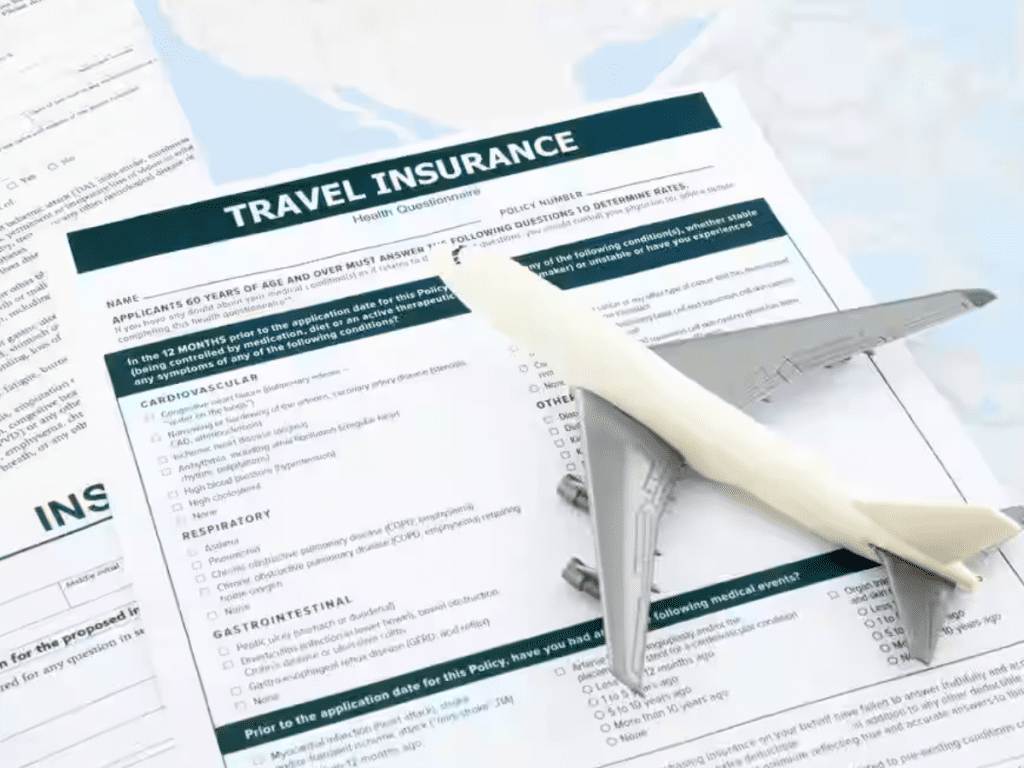Introduction
Traveling is an exciting experience, full of new adventures and unforgettable memories. Whether it’s a weekend getaway to a nearby city or a luxurious tropical retreat, a vacation can be one of the most enriching experiences of your life. However, it is also an investment of your time, money, and emotional energy. While most travelers focus on planning itineraries, booking flights, and reserving accommodations, many overlook one critical aspect of their trip: travel insurance.
Travel insurance is an often-underestimated but invaluable tool that protects you from the unexpected and ensures that your vacation investment is safeguarded. In this article, we will explore the importance of travel insurance, the types of coverage it provides, and why it is essential for a stress-free vacation.
The Uncertainty of Travel
No matter how meticulously you plan your trip, the reality is that things can go wrong. Whether it’s a missed flight, an unexpected illness, or a natural disaster, these disruptions can throw your entire travel experience into chaos. Travel insurance serves as a safety net, providing financial protection in the event of an unforeseen emergency or cancellation.
For example, a flight delay or cancellation can lead to missed connections, expensive rebooking fees, or a delay in reaching your destination. Without travel insurance, the cost of these disruptions would fall entirely on you. With travel insurance, you are typically entitled to compensation, whether it’s a reimbursement for a canceled flight or assistance in rebooking flights, hotels, or transportation.
Furthermore, natural disasters or political unrest can force travelers to alter their plans mid-trip, and if you are in a foreign country, medical treatment can be costly. Without the protection of travel insurance, these unforeseen events can leave you financially vulnerable.
Types of Travel Insurance
Travel insurance is not a one-size-fits-all product. Depending on your needs and the type of trip you’re taking, different plans provide various types of coverage. Below are the most common types of travel insurance that can help protect your vacation investment:
- Trip Cancellation Insurance: This is one of the most popular types of travel insurance. It covers you if you need to cancel your trip before it starts due to unforeseen circumstances, such as illness, injury, or a family emergency. With trip cancellation insurance, you can receive reimbursement for non-refundable expenses like flight tickets, hotel bookings, and prepaid tours.
- Trip Interruption Insurance: While trip cancellation insurance protects you if you cancel a trip before it starts, trip interruption insurance covers you if you need to cut your trip short. Whether it’s because of a personal emergency, severe weather conditions, or a health issue, this type of insurance ensures that you won’t lose your money if your trip is interrupted. It typically covers the cost of returning home early and any additional expenses incurred due to the interruption.
- Medical Insurance: One of the greatest benefits of travel insurance is the medical coverage it provides. Medical emergencies can occur at any time, and while your regular health insurance may not cover treatment abroad, travel insurance can ensure that you receive the necessary care, whether it’s for a serious illness, injury, or hospitalization. In addition, medical evacuation insurance covers the cost of airlifting you to the nearest medical facility if necessary.
- Emergency Evacuation Insurance: If you are in a remote or dangerous location and need to be evacuated due to a medical emergency or a natural disaster, emergency evacuation insurance covers the high cost of transportation. This could include airlifting to the nearest hospital or even evacuating from a region affected by civil unrest or political turmoil.
- Baggage Insurance: Losing your luggage is one of the most frustrating aspects of traveling, but with baggage insurance, you can be reimbursed for the cost of replacing lost, stolen, or damaged items. This type of coverage can save you from out-of-pocket expenses, especially if your baggage contains expensive or essential items.
- Travel Delay Insurance: This coverage compensates you if your trip is delayed for a certain period due to reasons such as weather, mechanical issues, or other unexpected events. It may cover expenses like meals, accommodation, and transportation during the delay. In addition, it can also cover the costs of rebooking flights or other travel arrangements.
- Rental Car Insurance: If you plan on renting a car during your vacation, rental car insurance protects you in the event of an accident, theft, or damage to the vehicle. This type of coverage is particularly useful if you are traveling in a foreign country, where your personal car insurance may not apply.
Why Travel Insurance is Essential
While many people view travel insurance as an unnecessary expense, the reality is that the risks associated with traveling—especially internationally—are high. The cost of unexpected disruptions or emergencies can far exceed the cost of insurance, and without proper coverage, you could be left financially burdened and emotionally stressed.
- Financial Protection: The primary reason for purchasing travel insurance is to protect your financial investment in the trip. If you have already paid for your flights, hotel accommodations, tours, or excursions, and your trip is canceled or interrupted, you risk losing those payments. Travel insurance provides you with the necessary protection to avoid such losses.
- Peace of Mind: Traveling to unfamiliar places, especially internationally, can come with a sense of uncertainty and apprehension. Knowing that you are covered by travel insurance allows you to focus on enjoying your trip, knowing that if something goes wrong, you have a safety net. This peace of mind can make all the difference in reducing stress and ensuring that you have an enjoyable vacation.
- Medical Protection: If you fall ill or get injured while traveling, the cost of medical treatment abroad can be extremely expensive. For example, a simple hospital visit in the United States can cost hundreds, if not thousands, of dollars, and this cost could be even higher if you need to be airlifted to another location for treatment. Travel insurance with medical coverage ensures that you won’t have to bear the full financial burden of medical emergencies while abroad.
- Crisis Management: In the event of a major crisis, such as a natural disaster, terrorist attack, or political unrest, travel insurance provides you with the support and resources you need. Some policies offer emergency assistance, including evacuation, relocation, or repatriation, ensuring that you can return home safely.
- Convenience and Support: Travel insurance offers not just financial protection, but also a 24/7 support network. Many travel insurance providers offer assistance services to help you find medical care, book new travel arrangements, or even provide translation services in emergency situations. This added convenience can be invaluable during a stressful situation.
Cost vs. Benefit: Is Travel Insurance Worth It?
The cost of travel insurance is relatively small compared to the potential expenses you might face if something goes wrong during your trip. The price of a travel insurance policy typically ranges from 4% to 10% of the total cost of the trip, depending on factors such as the destination, trip duration, age of the traveler, and the coverage chosen.
While some travelers may be hesitant to add the extra cost of travel insurance, it is important to weigh the potential benefits. Consider the cost of medical treatment in another country, the price of last-minute rebooked flights, or the financial impact of a canceled vacation. In many cases, travel insurance is a small price to pay for the peace of mind and protection it offers.
Additionally, purchasing travel insurance is particularly crucial if you are embarking on an expensive vacation, traveling with family, or going to a destination where medical care or travel disruptions are more likely.
How to Choose the Right Travel Insurance
Choosing the right travel insurance policy can be overwhelming, but it’s important to find a plan that suits your needs and budget. When evaluating different policies, consider the following factors:
- Trip Duration: Longer trips may require more extensive coverage, including coverage for medical emergencies, trip interruptions, and evacuation. Make sure the insurance covers the full length of your trip.
- Destination: The destination plays a significant role in determining the type of coverage you need. International trips, especially to countries with higher healthcare costs or political instability, may require more robust coverage.
- Medical Needs: If you have pre-existing medical conditions or special healthcare needs, ensure that your policy provides coverage for those conditions.
- Adventure Activities: If your vacation includes adventurous activities such as skiing, scuba diving, or hiking, check if your policy covers any potential injuries or accidents related to these activities.
- Budget: While it’s important to have adequate coverage, make sure the cost of insurance fits within your travel budget. Compare different policies to find the best value for your needs.
Conclusion
Travel insurance is one of the best investments you can make for your vacation, offering you financial protection, medical assistance, and peace of mind in the face of unexpected events. While it may seem like an unnecessary expense for some, the potential risks of traveling without insurance far outweigh the cost. From trip cancellations and interruptions to medical emergencies and baggage loss, travel insurance ensures that you won’t face financial ruin if things go wrong. By choosing the right coverage for your needs, you can enjoy your vacation with confidence, knowing that you are fully protected.

